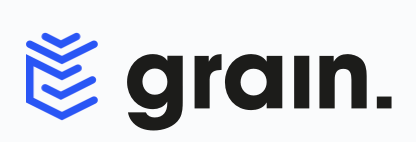
Ever since ICO mania exploded in early 2017, Switzerland has served as Europe’s de facto crowdsale launchpad. Financial authorities have welcomed crypto startups, and the likes of Tezos, Mysterium, and Arcblock have all heeded that call. Guidelines laid out by Switzerland’s Financial Market Supervisory Authority (FINMA) in February were meant to add clarity for ICOs. Instead, they’ve had the opposite effect.
Also read: Switzerland Enacts ICO Guidelines
FINMA Guidelines Are Causing Concern
In February, news.Bitcoin.com reported how FINMA had published guidelines with the intention of “creating clarity for market participants”. Among the risks addressed by the 11-page document was the concern that money could be laundered through crowdsales. Under section 3.7 (Compliance with AMLA), the document states:
Anti-money laundering regulation gives rise to a range of due diligence requirements including the requirement to establish the identity of the beneficial owner and the obligation either to affiliate to a self-regulatory organisation (SRO) or to be subject directly to FINMA supervision. These requirements can be fulfilled by having the funds accepted via a financial intermediary who is already subject to the AMLA in Switzerland and who exercises on behalf of the organiser the corresponding due diligence requirements.
In plain English, this means that ICOs must use a Swiss company to perform KYC on all ICO participants, which is where the problems have started. With only a handful of companies in a position to perform such checks, these entities effectively hold a monopoly. The average cost for a KYC check ranges from between $0.6 to $2 within the ICO space – but Switzerland is an exception. Accredited bodies are charging up to $25 per check, leaving projects that have already made the decision to host their crowdsale in Switzerland in an awkward position.
Grain Counts the Cost of Following FINMA
 Grain is an infrastructure solution seeking to host work agreements and contracts on the blockchain. In February, it announced that it would be postponing its ICO for a month to accord to the new guidelines FINMA has introduced, writing: “Although there is no ICO specific regulation or consistent legal doctrine, we’ve decided to “better be safe than sorry”. We want Grain to be a sustainable, long-term success story and avoid potential compliance issues that might disturb that trajectory.”
Grain is an infrastructure solution seeking to host work agreements and contracts on the blockchain. In February, it announced that it would be postponing its ICO for a month to accord to the new guidelines FINMA has introduced, writing: “Although there is no ICO specific regulation or consistent legal doctrine, we’ve decided to “better be safe than sorry”. We want Grain to be a sustainable, long-term success story and avoid potential compliance issues that might disturb that trajectory.”
One consequence of electing to follow FINMA’s guidelines to the letter was that Grain had to raise its minimum crowdsale contribution, which had been set at 0.1 ETH, in order to cover the increased costs of Swiss KYC. Anywhere else in the world, a typical crowdsale can conduct KYC on all participants for around $30,000. In Switzerland, companies such as ICO Engine charge 5% of all ethereum raised, which means they stand to pocket $200,000 or more simply for administering basic verification.

Because FINMA’s guidelines aren’t legally binding, there is an alternative option – disregard them altogether and don’t conduct any sort of due diligence. This is a strategy that’s fraught with risk, but which some projects have chosen to follow. While the likes of Grain has chosen to do things by the book, other Swiss-based ICOs such as Dorado have skipped KYC altogether. Investors need only a Facebook or Gmail ID to login and contribute funds in fiat or crypto. Dorado’s sole means of ensuring that investors aren’t from the U.S., for example, is a checkbox. So long as FINMA’s guidelines remain unbinding and unamended, they risk driving ethical ICOs away and allowing the more gung-ho projects to proliferate.
Do you think ICOs should simply ignore FINMA’s guidelines, or is their best option to avoid Switzerland altogether? Let us know in the comments section below.
Images courtesy of Shutterstock.
Need to calculate your bitcoin holdings? Check our tools section.
The post Swiss Regulations Are Driving ICOs Away appeared first on Bitcoin News.
Powered by WPeMatico
